Libya
With only days to go until scheduled elections meant to cap Libya's long political transition and unify the war-torn country, many instead fear a return to violence.
Standing near the port in the capital Tripoli, Khaled al-Turki said he has little optimism about the December 24 vote.
"The most prominent candidates are divisive," the 25-year-old told AFP.
"If there had been a candidate with broad public approval, competent and able to bring the Libyan people together, we would have been more optimistic. But that's not the case."
Since longtime ruler Muammar Gaddafi was toppled and killed in a 2011 revolt, the North African country has endured a decade of war, leaving bitter divisions and impoverishing the population, despite Libya's oil wealth.
But before any government can fix the dire economic situation, it will need to bring security, said Adam Bin Fayed, who works with Turki at an international organisation in Tripoli.
"I hope that problems like electricity cuts, the lack of cash and (damaged) infrastructure can be sorted out," Bin Fayed said.
"But the priority has to be secure because you can't build anything ... until security is in place."
Like Turki, he is concerned over the lack of a unifying candidate.
"To build security, the president needs to be able to speak to all Libyans," he said.
'Unifying president' -
The elections, part of a United Nations-led process since a landmark east-west ceasefire last year, have been overshadowed by political maneuvering and the lack of an agreed legal framework.
They come after years of fighting that has displaced tens of thousands of Libyans.
Many exiles from the Gaddafi era who had returned to take part in the country's democratic transition have since left again.
On the economic front, the Libyan dinar has collapsed, real estate prices have surged and power cuts are commonplace.
Libyans must queue for hours to withdraw money or buy petrol -- despite the country having Africa's largest crude reserves.
Along Tripoli's seafront, idle cranes are rusting amid the carcasses of unfinished buildings, testament to a deep economic malaise.
"We want a president who will look after the poor (and) is able to unify the country," said Khalifa Ramadan al-Nakoua, a Tripoli retiree wrapped in a scarf against the winter cold.
"We want an end to electricity cuts -- this is an oil-rich country!"
Libya's crude exports, which financed generous patronage networks and state services under Kadhafi, have been repeatedly hit by fighting or blockades since his fall.
New constitution -
Abdalsalam al-Mabrouk, a 47-year-old economy ministry employee, said Libyans "want the government to handle a peaceful transfer of power and write a new constitution".
Libya has not had such a charter since Kadhafi cancelled the last one in 1969, and the lack of a constitutional basis for the polls has been a key point of contention.
Some 1,000 kilometres (600 miles) east of Tripoli, residents of the second city Benghazi share the fears of their compatriots in the capital.
The first city to rise up against Kadhafi, Benghazi has endured years of violence, leaving bullet holes and ruined buildings in its Old City.
Civil registrar Zakaria Mahjoub, 32, said he had been optimistic that a transitional government that took office in March would be able to unify the state.
"But its head (interim Prime Minister Abdulhamid Dbeibah) didn't keep his promise to unify Libyans -- and now he's running for president" despite earlier promising he wouldn't, Mahjoub said.
"I'm not optimistic about the presidential elections, because all the candidates either played a part in messing up the situation or are divisive figures," he said.
"If these elections take place on time, which I don't believe will happen, will the rival camps accept the results?" he asked.




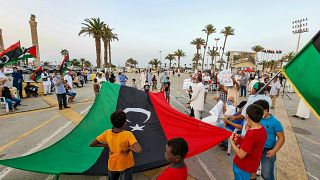
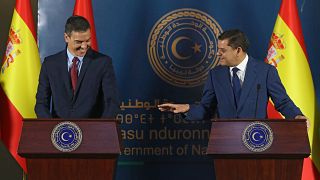
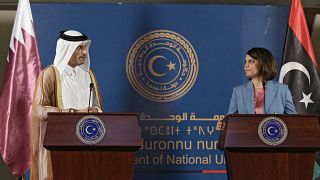
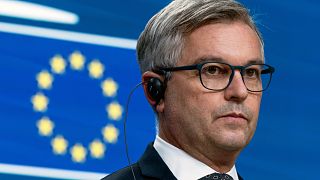

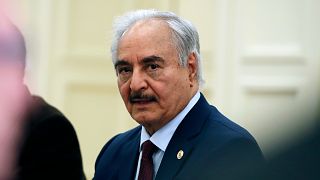
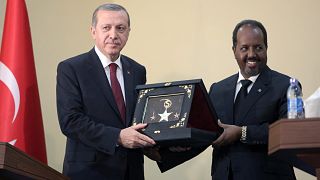
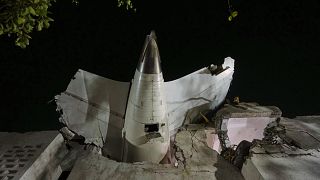

Go to video
Greece cracks down on irregular migration, says it’s "not an open corridor to Europe"
01:27
More than 1,200 migrants arrive in Crete amid influx from Libya
01:50
UN urges renewed political and climate action in Libya amid humanitarian and governance crises
00:54
Eleven Sudanese migrants dead after crash in Libyan desert
Go to video
Libya: UN announces "truce committee" as ceasefire holds after violence clashes in Tripoli
Go to video
Pix of the Day: May 15, 2025